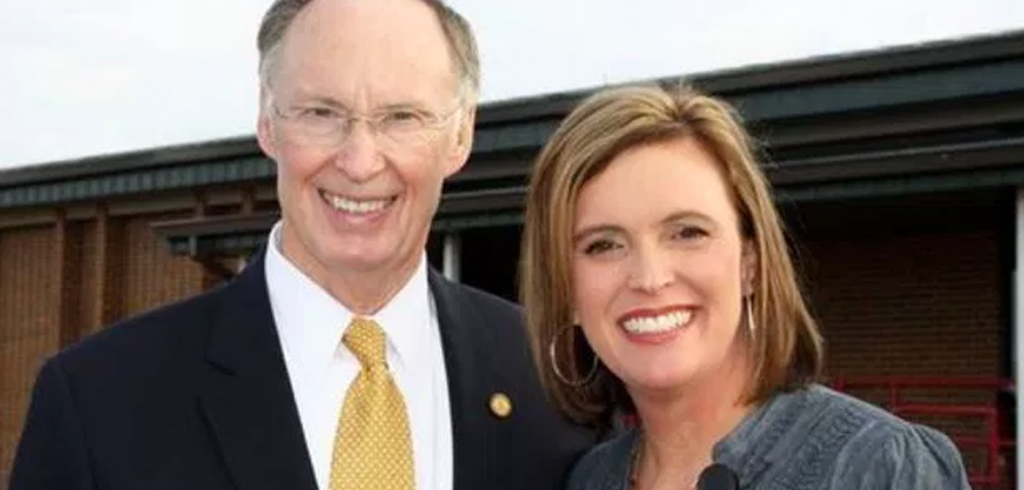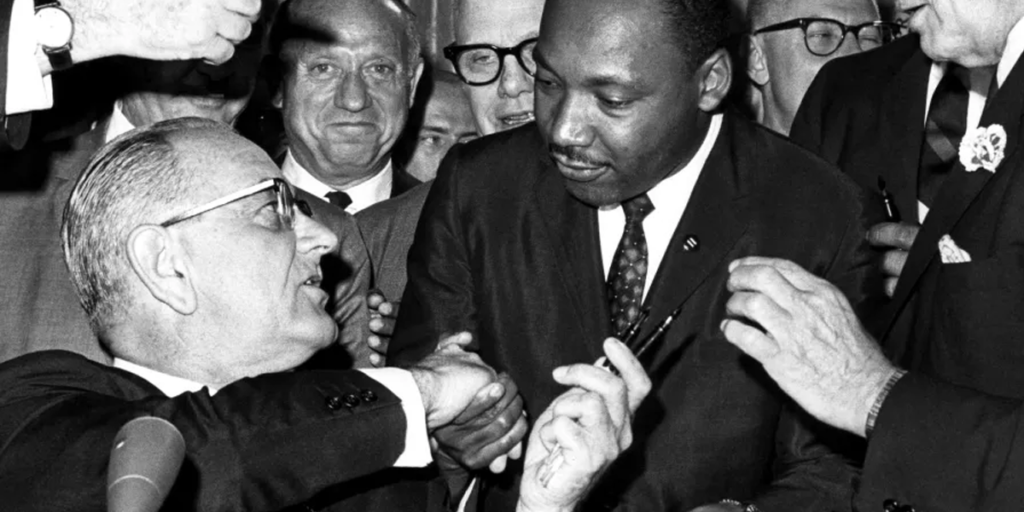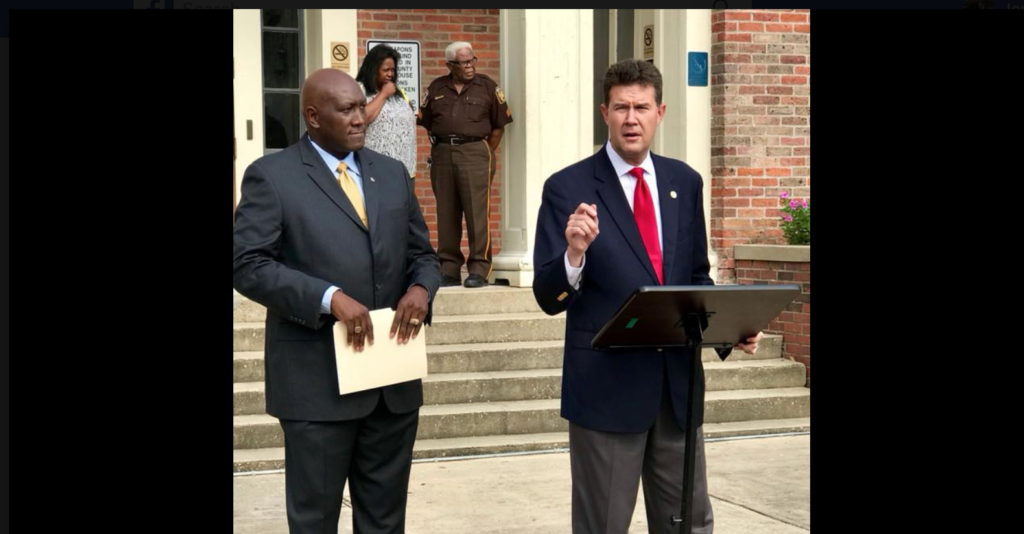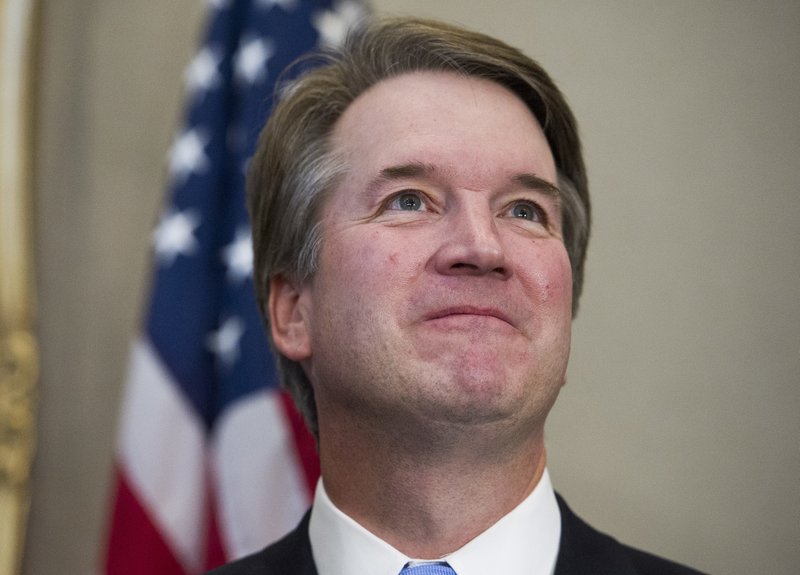Former governor Robert Bentley’s website and social media activities pose curious questions

Former governor Robert Bentley, or someone acting on his behalf, has been active online in recent days prompting questions from politicos, the general public and even his own former staff members. Among the recent changes are a name change for his official facebook group and several new posts. His page formally, “Bentley for Governor” was changed to “Bentley for Alabama” on May 28th. Since it has seen a handful of posts including one earlier today. May 26, 2018 two days before the groups name change someone posted on the page a message signed with the Governor’s name. It was the first post since October 2014, and read: “ABOUT THIS PAGE: Bentley for Alabama, and our partner website www.bentleyforalabama.org, examines the specific time during which Governor Robert Bentley served the people of the state as Alabama’s 53rd Governor and provides recent updates on the former Governor in post-public life, his charitable work and his continued enthusiasm for the causes he championed during his two terms in Office. This Facebook Page provides new updates, and past posts in their original form from the time Governor Bentley served in public office. Posts are time stamped, and some links may no longer be active. Governor Bentley has generously made available free and easy access to digital resources of the Bentley Administration as well as two Bentley for Governor Campaigns. Please visit BentleyforAlabama.org for more details.” This recent activity comes among public scrutiny for statements made during depositions taken in June that revealed Rebekah Caldwell Mason, the woman he was accused of having an affair with is now working for him as an office manager at his dermotology practice, Dermatology Care of Alabama in Tucaloosa. AL.com reported, “Under questioning from attorneys, Bentley confirmed Mason works as the office manager for his Tuscaloosa-based medical practice, Dermatology Care of Alabama. Bentley said Mason works 9 a.m.-5 p.m. four days a week and 9 a.m.-noon on Friday, when the practice closes early. She is paid $5,000 a month, or $60,000 a year, he told attorneys.” Bentley’s updated facebook page and this new information has some wondering if Mason is the one updating the page. “He would not have been able to nor did he have any interest in learning to post to social media. Furthermore, if you look at the content, it’s not written using phrasing natural to Bentley but is familiar to those who recognize the writings of Rebekah Mason,” said a former Bentley staffer familiar with Bentley’s social media history told Alabama Today. We attempted to contact Mason and/or Bentley at his medical office to ask about the sudden activity but no one answered the phone. While the Facebook and website updates are mundane in content, the most recent about Bentley’s efforts to bring jobs to the Yellowhammer State, and the process of his elections, some commenters on the page seem puzzled by the recent activity: “It is bizarre and if it wasn’t so sad it would be funny,” the same former Bentley staffer continued. “It’s unfortunate for the state of Alabama that Rebekah Caldwell Mason won’t let the Governor end out his service to Alabama with respect and dignity. She continually makes him a laughing stock with stunts like this.” Speaking to the way Mason has manipulated the Governor, the allegations of how she used her office for her own gain and all of the ways in which she continues to profit off of him the staffer noted she is of the opinion that, “This borders on elder abuse. She’s taking advantage of an elderly man.”
On its 53rd anniversary, Terri Sewell says Voting Rights Act must be restored

Monday, August 6, marks the 53rd anniversary of the enactment of the Voting Rights Act of 1965 (VRA). The VRA abolished restrictions on black Americans voting in federal, state and local elections. In 2013, key components of the law were removed by the Supreme Court in its Shelby County v. Holder decision. Alabama 7th District U.S. Rep. Terri Sewell on Monday said the the law must be restored. “Today’s anniversary is a reminder that foot soldiers in Alabama and across the country fought, bled, and died for our right to vote,” saidSewell. “Right now, their work is under attack as states across the country pass strict voter ID laws, gerrymander electoral districts, and purge voters from their voter rolls. As we recognize the impact that Shelby County v. Holder has had on our democracy and its damaging effect on voter access, let us recommit to action in the face of voter suppression. We must restore the full protections of the Voting Rights Act to keep our elections free and fair. In June 2017, Sewell sponsored the Voting Rights Advancement Act (VRAA), which seeks to restore full protections to the Voting Rights Act of 1965 following Shelby County v. Holder. To address the Supreme Court’s concerns with the VRA, the VRAA would create a new coverage formula which requires federal oversight of states with repeated voting rights violations in the last 25 years. If passed, 13 states nationwide, including Alabama, would be subject to federal election oversight due to a recent history of voter discrimination. It would also require states with a recent history of voter discrimination to seek approval from the Department of Justice before making any changes to their electoral laws.
Fairhope police chief Joseph Petties announces retirement, for good this time

After a 35-year career and a months long battle with Fairhope Mayor Karin Wilson, Fairhope police chief Joseph Petties announced his retirement last week; for good this time. In June, Petties attended a city council meeting declaring he was retiring – only to rescind his retirement minutes later. After receiving a standing ovation from the council Petties made a statement on why he was retiring; saying Wilson bullied him and made false accusations against him. “There are times when you don’t always see eye to eye with your supervisor,” Petties told the council, WKRG reported. “But the treatment that I’ve been subjected to as grown to the point that it can’t be ignored.” This time however, Petties named other reasons for his announcement, saying his family is battling a lot of health issues, and he did not feel comfortable taking leave. “It’s come to the point that I’m going to step down as police chief,” Petties told WABF on Thursday. “I met with a couple of councilmen and talked to the rest on the phone. I’m going to put my family first.” WABF radio host Lori DuBose asked Petties if the negative performance review and resignation request from Wilson had anything to do with his retirement, to which he replied “A lot of that played a part, but at the end of the day, I know it has been tough on my family,” The Courier reported. “Right now, the way I’m looking at it, I”m not going to make it about what was going on in the past. I’m looking at what is going on with my parents and that’s how I’m approaching this.” “Your service and your decitation; your humbleness, the way you handle yourself, this department and our citizens is beyond reproach. Thank you so much for your service,” DuBose said. Petties retirement is effective August 10.
Alabama taking comments on Medicaid work requirement

Alabama is accepting comments on its proposal to put a work requirement on 74,000 Medicaid recipients. The Alabama Medicaid Agency opened a new public comment period on the proposal. The proposal would require 35 hours of work, job training, education or volunteer service each week. Exceptions would be made for people with young or disabled children The proposal only impacts a small number of Medicaid recipients, able-bodied parents and caretakers who qualify because their income is less than 18 percent of the federal poverty level. Most Medicaid beneficiaries in the state are children, disabled or elderly. State officials wrote that the requirement will improve the health and economic stability of recipients. Advocacy groups criticize the proposal, saying it would cause the “poorest of the poor” to lose their health care. Republished with the permission of the Associated Press.
The Latest: Donald Trump reinstates many sanctions on Iran

The Latest on U.S. sanctions on Iran (all times local): 11:05 a.m. President Donald Trump is signing an executive order reimposing many sanctions on Iran, three months after pulling out of the Iran nuclear deal. He says the U.S. policy is to levy “maximum economic pressure” on the country. In a statement Monday, Trump restated his opinion that the 2015 international accord to freeze Iran’s nuclear program in return for lifting sanctions was a “horrible, one-sided deal.” He says it left the Iranian government flush with cash to use to fuel conflict in the Middle East. Trump says the U.S. is urging all nations “to make clear that the Iranian regime faces a choice: either change its threatening, destabilizing behavior and reintegrate with the global economy, or continue down a path of economic isolation.” Trump warned that those that don’t wind down their ties to the Iranian economy “risk severe consequences” under the reimposed sanctions. 10:30 a.m. A senior administration official says the United States is “not particularly concerned” by EU efforts to protect European firms from the re-imposition of sanctions on Iran. The official was not authorized to discuss the matter by name and spoke Monday on condition of anonymity. The European Union issued a “blocking statute” Monday to protect European businesses from the impact of sanctions set to return Monday at midnight. The official says the U.S. will use the sanctions aggressively and cited Iran’s severe economic downturn this year as evidence the sanctions would prove to be effective despite opposition from the EU, China and Russia. 7:35 a.m. European foreign ministers say they “deeply regret” the re-imposition of U.S. sanctions on Iran. A statement Monday by European Union foreign policy chief Federica Mogherini and foreign ministers of France, Germany and the United Kingdom insisted that the 2015 Iran nuclear deal “is working and delivering on its goal” of limiting Iran’s nuclear program. President Donald Trump withdrew the U.S. from the deal, which had lifted international sanctions in exchange for Iran agreeing to restrictions on its nuclear program. U.N. inspectors said Iran was complying with the deal, but Trump argued that it didn’t do enough. But the European ministers said the Iran deal is “crucial for the security of Europe, the region and the entire world.” The first set of reinstated U.S. sanctions goes into effect Monday. Those target Iran’s automotive sector as well as gold and other metals. 12:31 a.m. Secretary of State Mike Pompeo says the renewed sanctions against Iran are an important pillar in U.S. policy toward the Tehran government. Pompeo says the sanctions will be rigorously enforced and remain in place until the Iranian government radically changes course. Those sanctions go back in place on Monday. Pompeo told reporters on his way home from a three-nation trip to South East Asia that the Trump administration is open to looking beyond sanctions but adds that would “require enormous change” from Tehran. He said President Donald Trump is intent on getting Iran to “behave like a normal country.” U.S. sanctions had been eased by the Obama administration under the terms of the landmark 2015 Iran nuclear deal. Trump decided in May to withdraw from the accord. Republished with the permission of the Associated Press.
Bullock County probate judge candidate disqualified from race

Last week, Alabama Secretary of State John Merrill joined incumbent Bullock County Probate Judge James Tatum in publicly disqualifying his opponent; independent candidate Justin Faulk. Merrill and Tatum met in front of the Bullock County Courthouse on Tuesday to publicly discuss the reasons Faulk was being disqualified. According to the two men Faulk did not send in the required financial form in the alloted timeframe. Since Faulk was running as an independent, a petition signed by members of the community was required to provide him with ballot access. The two men also accuse Faulk, or some of his supporters, of forging signatures on the petition he sent to Tatum’s office in June. Tatum said that after receiving and reviewing the 18 pages and 102 signatures of the petition, it was clear some of the signatures were signed by the same person. Tatum then turned the petition over to Merrill’s office where it was investigated. “As a result of this investigation it was determined that several of those signatures were invalid,” Tatum told the gathering. “Now this is unethical. It’s dishonest, it’s illegal, it is wrong, and it’s corruption at the highest; and this will not be tolerated,” he continued. Faulk told WSFA that he did send in the required paperwork, both to the probate office and the Alabama Ethics Commission. Tatum said the probate office was not the correct place to send the paperwork, and that he never received it. “In regards to the petition, Faulk said as far he knew, every one of the signatures is valid, not forged by him or his five primary supporters who handled the petition,” WSFA reported. “In fact, Bullock County Sheriff Raymond Rogers told WSFA that based on his own investigation, the signatures were not forged and that they were all signed by the very people listed on the 18 pages.” “We’re good, honest people and I will defend myself because I know I am right and he’s wrong,” Faulk said, WSFA reported. Watch Tatum and Merrill’s full press conference below:
GOP senators rave about Brett Kavanaugh; Dems prepare to grill him

Now that Supreme Court nominee Brett Kavanaugh has met privately with almost every Republican senator, it’s becoming increasingly clear President Donald Trump’s pick for the bench is running into little GOP resistance to confirmation this fall. The conservative appellate judge is breezing past swirling questions over his views on executive power and his approach to gay marriage, abortion and other legal issues. Kavanaugh left some Republicans with the impression that his earlier reluctance to investigate sitting presidents would not impede the Russia investigation of special counsel Robert Mueller. Other senators avoided such queries, preferring more of a get-to-know-you session with the 53-year-old judge to hear his story. Ask the GOP senators what they’re learning in their private chats and they’ll tell you the following: Kavanaugh loves his family. Lives for the law. And, like the president he once worked for, George W. Bush, he’s open and chatty, the kind of guy you’d like to have a beer with. “I just wanted to understand — try to understand — what’s in his heart,” said Sen. John Kennedy, R-La., who added that he was saving his legal questions for Kavanaugh’s confirmation hearings. “He impresses me as the sort of guy that would actually talk and get to know the people who clean his office.” The practice of Supreme Court nominees making “courtesy calls” to senators seems to have begun around 1970, according to the Senate Historical Office. That year, nominee Harry Blackmun made the rounds ahead of his confirmation hearing before the Judiciary Committee. Some senators use the visits to probe the nominee’s judicial philosophy, while others treat it more like a photo op. Since being nominated July 9, Kavanaugh has met with 47 senators — all but one of them Republican — at a rapid clip. The meetings have created growing momentum for Kavanaugh among Republicans that Democrats may be hard-pressed to stop. Even one early skeptic, Sen. Rand Paul of Kentucky, is now a yes vote. Still, the most challenging meetings for Kavanaugh are yet to come. Two key Republican senators, Lisa Murkowski of Alaska and Susan Collins of Maine, remain among the holdouts. They plan to meet with the judge this month. But even those two independent-minded senators, who both support abortion rights, may be unwilling to break with their party and prevent Trump from filling a second seat on the Supreme Court. Kavanaugh is also likely to meet with Democrats in mid-August, and they are certain to press the judge on a variety of hot-button issues. Only one Democrat,Joe Manchin of West Virginia, has met with Kavanaugh so far, and a person familiar with that session said Kavanaugh stressed his independence. The Republicans who have already met with Kavanaugh are leaving the meetings increasingly confident in Trump’s choice. Sen. David Perdue of Georgia said he asked the judge what he holds important. “We talked about how the partisanship really has created this gridlock and therefore it weakens us in terms of standing up,” said Perdue, a close ally of the president. “He says, ’Well, my desire all along has been to be a very studious defender of the Constitution and try to interpret the law, not make law.” Sen. Thom Tillis of North Carolina said he was satisfied that Kavanaugh’s earlier skepticism of special counsel investigations — like Mueller’s probe — was rooted in his work on Kenneth Starr’s team investigating Bill Clinton, rather than the events of today. “I don’t see how the two can be intertwined,” Tillis said. GOP Sen. James Lankford of Oklahoma said he did not broach the topic because he is already convinced Kavanaugh’s writings are not applicable to Mueller’s probe. “I didn’t take it that we shouldn’t do investigations. At all,” Lankford said. “The fact of the matter is Judge Kavanaugh is going to sit on the United States Supreme Court when we’re through,” said Sen. Orrin Hatch, R-Utah. Late last week, Democrats lost ground in their fight to unearth some 1 million documents related to Kavanaugh’s time as staff secretary at the Bush White House, a three-year stint on his resume that Republicans say is irrelevant to his qualifications for the court. Republicans have not asked for the records, and the National Archives has told Democrats it cannot process their request without GOP support. Kristine Lucius, the executive vice president for policy at the advocacy group The Leadership Conference on Civil and Human Rights, is pushing for the full release of the Kavanaugh documents and not those being handpicked by Republicans. She objects to “the notion that we would just have a curtain within three years of his record.” Democrats now plan to take their case directly to Kavanaugh, potentially turning the “courtesy calls” into cross-examination sessions of his thoughts on Bush-era topics like the detention of terrorism suspects and signing statements on legislation. Those subjects are likely covered in the documents Republicans refuse to seek. Republicans counter that there are already plenty of ways to scrutinize Kavanaugh’s record. He has handled more than 300 cases since 2006 as an appellate judge. Already the Judiciary Committee has requested some 125,000 files from Kavanaugh’s other years in the White House counsel’s office and 20,000 from his work on the Starr investigation. And with a 51-49 GOP majority in the Senate, narrowed with the longtime absence of the ailing Sen. John McCain, R-Ariz., Republicans will be able to confirm Kavanaugh if they hold together and prevent defections. GOP Sen. Deb Fischer of Nebraska said she was preparing a floor speech to deliver after her meeting with Kavanaugh, whom she found to be an incredibly open, honest man. “I don’t know how anyone could oppose him,” she said. “I really don’t.” Republished with the permission of the Associated Press.

